March 2-8
A look back at the main events in Romania this week.

Roxana Vasile, 09.03.2014, 13:58
Romania has a new government
As of Wednesday, Romania has a new government. President Traian Basescu and his main political opponent, the Social Democrat Prime Minister Victor Ponta, reached an agreement that put an end to a long period of political instability. The head of state green-lighted the ministers proposed by the prime minister. In his turn, Victor Ponta submitted to Parliament an updated governing programme, after the Democratic Union of Ethnic Hungarians in Romania entered the cabinet, following the withdrawal of the National Liberal Party and the break-up of the Social Liberal Union. Previously, the Liberal Leader Crin Antonescu had also resigned his position of Senate Speaker. The government is currently made up of the Social Democratic Party, the Democratic Union of Ethnic Hungarians in Romania, the Conservative Party and the National Union for the Progress of Romania. The ministers were sworn in before President Traian Basescu. Shortly after the swearing-in ceremony, Victor Ponta said:
“I would not want to give false hopes to anyone. We are still on different sides of the barricade and things are unlikely to change before December, when we will hopefully have a different kind of president.”
According to the prime minister, Basescu’s endorsement of the new government was imposed, among other things, by the regional reality. The EU and NATO need a stable, democratic and serious Romania, at a very difficult time, when all eyes are on Ukraine.
Romania and the Ukrainian crisis
Romania will participate with experts in the mission to Ukraine of the Organisation for Security and Cooperation in Europe. Moreover, Romania might take part in negotiations, in an attempt to ease the Russian-Ukrainian tensions, if a mediation team is set up, President Traian Basescu said after Thursday’s emergency summit of the EU heads of state and government. Traian Basescu:
“Romania has over 400,000 Romanian-speaking Ukrainian citizens there, accounting for the second largest minority in Ukraine, after the Russian one. So we are highly interested in the fate of minorities on Ukraine’s territory. This is the first argument. The second argument is that Romania is the EU country located closest to Crimea, only 160 sea miles away. For any of the 400 ships of the Russian fleet in Sevastopol this means a maximum of 10 hours to Romania’s border. Romania is also only 10 kilometres away from another area with an ongoing frozen conflict, the one in Transdniester, the pro-Russian separatist region in Eastern Moldova. “
Romanian Foreign Minister Titus Corlatean will pay a visit to Ukraine on Monday, March 1, to discuss with the Kiev authorities, among other things, the annulment of the law on regional and minority language. Bucharest wants a return to the law recently repealed by the new power in Kiev. The law, adopted in 2012, recognised the languages spoken by ethnic minorities accounting for at least 10% of the population in a particular region as regional languages.
High performances of the Romanian car making industry
In spite of the economic crisis, the sales of the Dacia plant in Romania, held by the French carmaker Renault, remain quite good and in January they reported the most substantial growth in the European Union. In 2013, over 294 thousand Dacia automobiles were registered in the 28 European countries, which is 22.8% more than in 2012. But instead of celebrating the good news, the Dacia employees staged a large-scale protest against the decisions of the Romanian authorities in the field of infrastructure. More specifically, they are disgruntled with the decision to postpone the construction of the Pitesti-Sibiu motorway, which should connect the south to the centre of the country. Trade union leader Dumitru Costin explains: (track) “If we postpone the funding of the Pitesti-Sibiu motorway for 2020, then we have to be prepared for unemployment and redundancies in the Romanian automobile industry. If this is what politicians really want, then they should at least have the courage to admit it.”
Viewed as a priority by the EU, the Pitesti-Sibiu motorway would help Renault by reducing their costs for automobile transport and procurement.
Romanian football in the spotlight
Romania’s football team have played a friendly game this week with Argentina, and although none of the sides scored, Romanian football fans were happy to see Barcelona’s striker, four-time Ballon d’Or winner Lionel Messi in Bucharest. Seen as a “luxury friendly,” the match took place on the same day as the election for president of the Romanian Football Federation. The post was won by the least known of the five candidates, young Razvan Burleanu, who will turn 30 on July 1st. A graduate of the School of Political Sciences, Razvan Burleanu gave up professional sport to complete his education. For the past few years, he has been heading the mini-football federation. The great ex-player Gheorghe Popescu, initially regarded as the most likely to win the election, was sentenced to three years behind bars on Tuesday. In a trial that had been pending for six years, and involved irregularities in football player transfers, seven other Romanian football heavyweights were sentenced for fraud, money laundering and tax evasion.
Romania liberalises its land market
This week president Traian Basescu has promulgated the Law on Agricultural Land, which simplifies the procedures for the sale of farmland to EU citizens and companies. In its EU Accession Treaty, Romania undertook to liberalise its land market by January 1st, 2014, so that EU citizens may purchase farmland without restrictions. With its 14 million hectares of agricultural land, considerably cheaper than in other EU states, Romania is therefore attractive for foreigners interested in buying land.




























